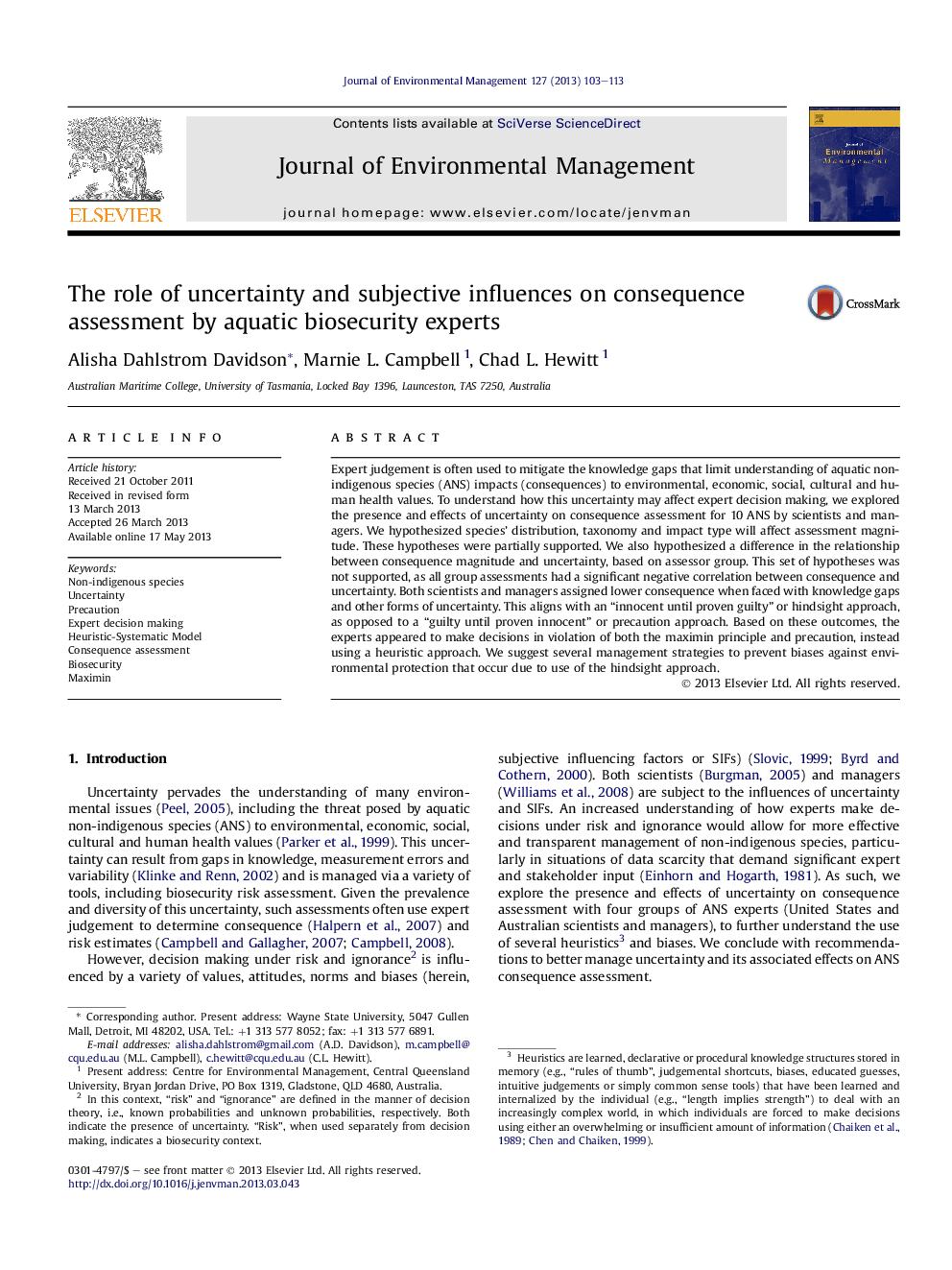| Article ID | Journal | Published Year | Pages | File Type |
|---|---|---|---|---|
| 1056012 | Journal of Environmental Management | 2013 | 11 Pages |
•We explore expert decision-making under uncertainty using nonindigenous species.•Scientists and managers assigned lower risk (impact) when uncertain.•This approach goes against the maximin principle and precaution.•Heuristic processing may explain why experts avoid assigning impact when uncertain.•Management must account for heuristic influences to minimize species' impacts.
Expert judgement is often used to mitigate the knowledge gaps that limit understanding of aquatic non-indigenous species (ANS) impacts (consequences) to environmental, economic, social, cultural and human health values. To understand how this uncertainty may affect expert decision making, we explored the presence and effects of uncertainty on consequence assessment for 10 ANS by scientists and managers. We hypothesized species' distribution, taxonomy and impact type will affect assessment magnitude. These hypotheses were partially supported. We also hypothesized a difference in the relationship between consequence magnitude and uncertainty, based on assessor group. This set of hypotheses was not supported, as all group assessments had a significant negative correlation between consequence and uncertainty. Both scientists and managers assigned lower consequence when faced with knowledge gaps and other forms of uncertainty. This aligns with an “innocent until proven guilty” or hindsight approach, as opposed to a “guilty until proven innocent” or precaution approach. Based on these outcomes, the experts appeared to make decisions in violation of both the maximin principle and precaution, instead using a heuristic approach. We suggest several management strategies to prevent biases against environmental protection that occur due to use of the hindsight approach.
